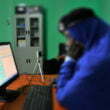REVELATIONS that Zambia is among seven African countries using ICT tools developed by an Israeli telecoms company to spy on citizens’ phone calls and text messages, among other communications, could not have come at a better time than now when we are discussing the necessity of the Cyber Security and Cyber Crimes Bill. In a recent report, the the University of Toronto which investigates digital espionage against civil society, has brought it to our attention that Zambia is on the list of seven African countries that details how governments were using tools developed by the Israeli telecoms company to spy on citizens’ communications.
According to data seen on the website, our government has turned to digital surveillance technology to crush resistance and to target opposition critics, mainly via smartphones. This cannot pass without comment as it is a very sensitive issue which deserves an explanation from those who are in charge of our government systems.
Many citizens in Zambia may not be aware that Lusaka City is under 24/7 CCTV surveillance. Many may not know that highways, buildings, public places such as malls and markets are all under close circuit television monitoring, under a programme they are calling the “Safe City” project. How many people know about it? We bet very few know. And that’s what should drive citizenʼs concern.
A few residents of Lusaka who have seen these camera’s are wondering who is behind this because there has been no deliberate policy from the government to inform the general public regarding this project. Every kilometre or two, especially in cities like Lusaka, there is a unit of cameras installed to a silver pole with a control box by the roadside, pointing in various directions.
Last year we asked the Chief Government Spokesperson, Honourable Dora Siliya, to explain this Safe City project, and she said Zambia was not going to remain behind on the use of technology to make cities safe. She added that citizens must have nothing to worry about, unless they are involved in any illicit or criminal activities.
“You can google how other cities are run. There are no cities with more public cameras than in America, UK, the rest of Europe and Russia. Even along all residential streets, and residences are advised to also have private cameras. Many Zambians in Kabulonga, Roma, at various farms have already put many security cameras in houses, and around their yards. So there is nothing wrong with that, you can speak to home affairs about the companies that are installing Safe City cameras, but really, only unexposed people can speculate. You can google about this,” said Siliya.
Well, following the minister’s advice, we googled “Safe City in Africa” and the information we found was from a report published by the Wall Street Journal on August 15, 2019 in which it was reported that the Chinese, using Huawei technicians, helped African governments to spy on political opponents. The investigation by Joe Parkinson, Nicholas Bariyo and Josh Chin revealed that Huawei employees embedded with cybersecurity forces in Uganda and Zambia intercepted encrypted communications and used cell data to track opponents.
Since 2012 the US government has accused Huawei – the world’s largest maker of telecom equipment and second largest manufacturer of smartphones of being a potential tool for the Chinese government to spy abroad, after decades of alleged corporate espionage by state-backed Chinese actors. Huawei has forcefully denied those charges. But it must worry us that we are hearing more and more of these attempts by the government to intrude in people’s privacy.
Such revelations should not only worry citizens, our government must also be wondering if they are not risking State intelligence with such agreement with the Chinese and Israelis as reported by the University of Toronto. The Zambian government might mean well with these technological advances in surveillance. The Safe City project might probably be meant to protect citizens, but how safe is the so-called Safe City project if protecting people means invading their privacy using foreign companies and their technology? How much of this surveillance intelligence is being contained and prevented from seeping out to these foreign interests? How much are we exposing our own state through these technology investments?
Our opinion is that these foreign companies from China and Israel need to be watched closely because it’s easy for them to infiltrate our country in order to give their governments’ intelligence services a backdoor entry to steal private citizens’ data and State secrets as well.












